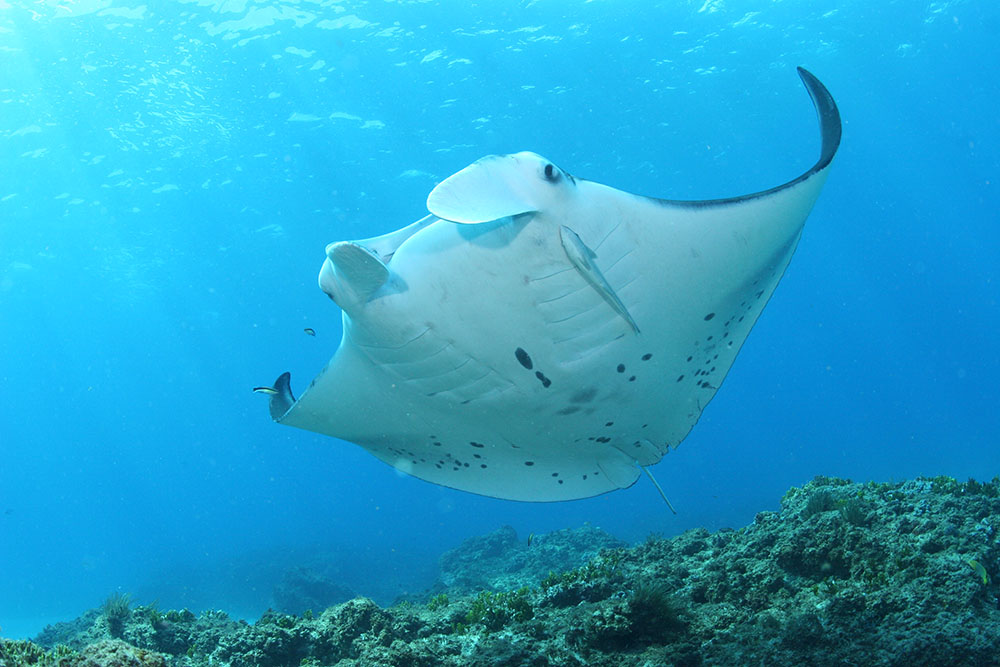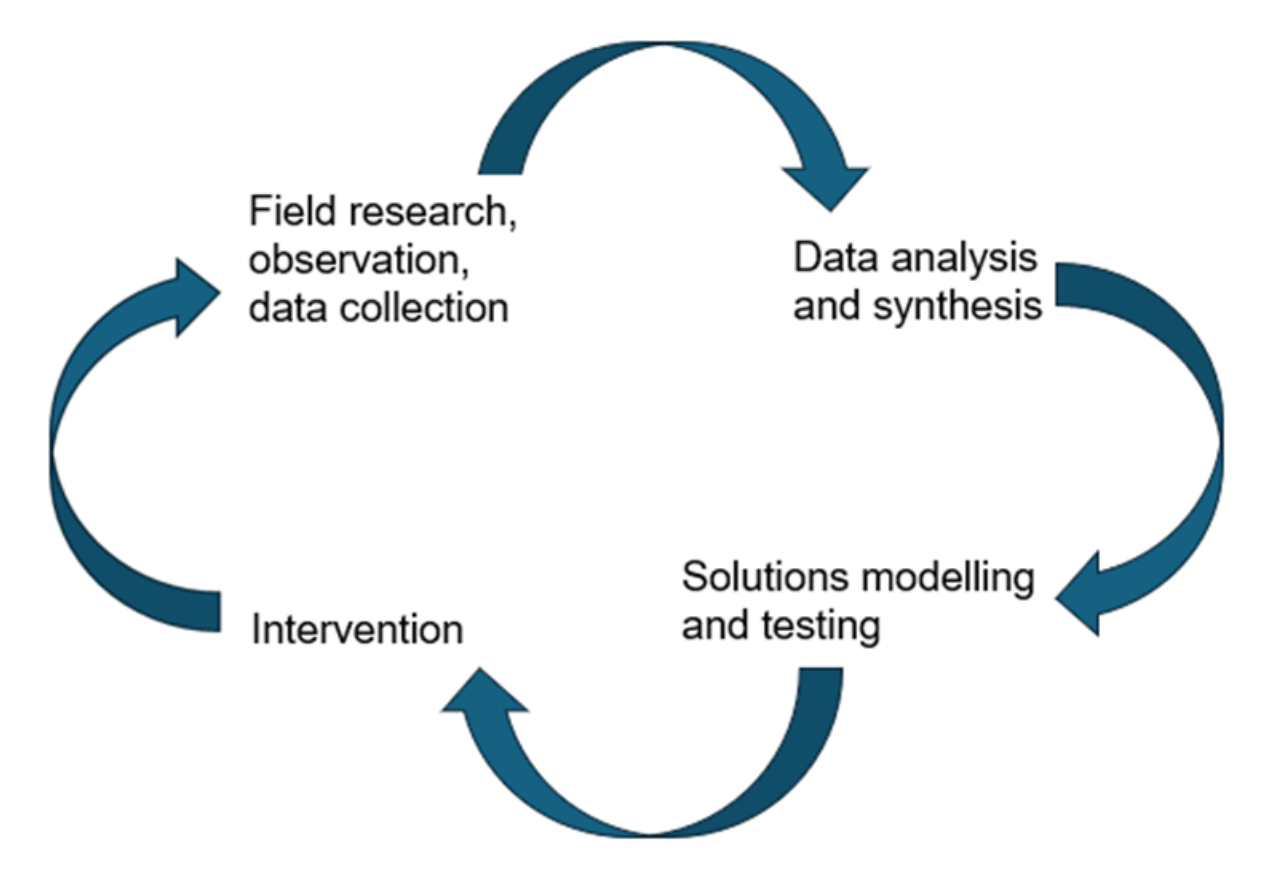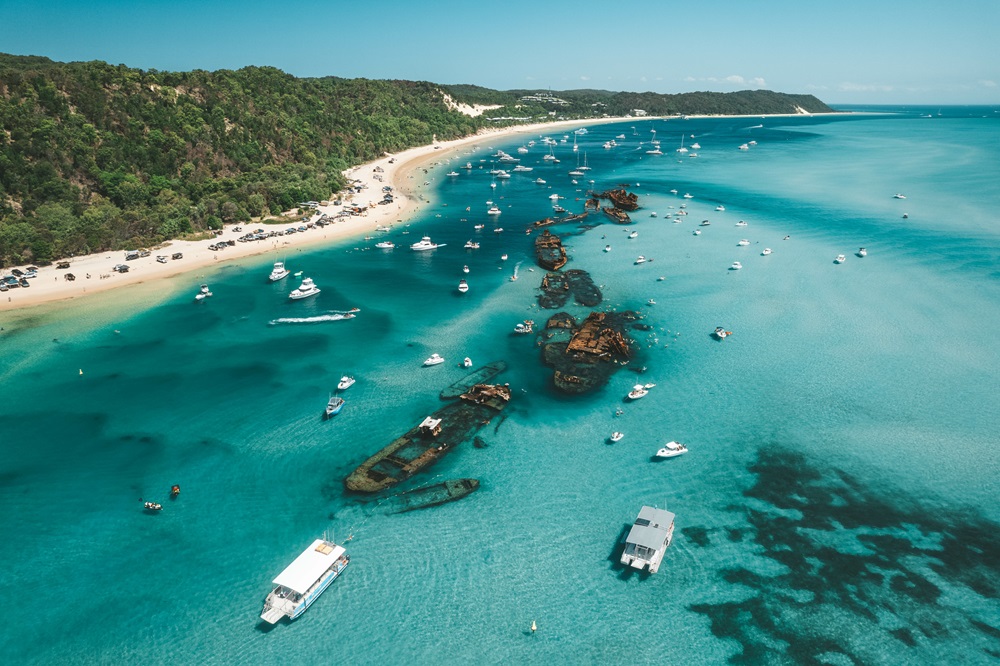Moreton Bay and its catchment are internationally recognised as among the most biodiverse regions of the world.
Approximately 1,000 native animal species, many threatened, live in Moreton Bay or rely on its diverse, interconnected habitats during migration. Its beauty and importance to Queensland life and enterprise belie a picture of growing ecological decline, much of it tied to human development and climate change.
That is the present. The future could tell a different story. Healthy Moreton Bay is all about creating a thriving and sustainable ecosystem – one that will showcase Australian conservation and environmental leadership to the world in 2032.
The time to act is now. An investment in UQ’s Healthy Moreton Bay initiative is an investment in impact, ensuring that this extraordinary place is protected, preserved, enjoyed and respected for generations to come.
A shared vision
Healthy Moreton Bay will draw on the leadership of the Quandamooka Yoolooburrabee Aboriginal Corporation (QYAC) and strong partnerships with The Moreton Bay Foundation and other key stakeholders, including government, industry and the general public.
A collaborative approach is key to developing, testing and embedding sustainable ecological management practice, not just for the bay itself, but for the coastline and catchment areas facing threats compounded by climate change and severe weather events. Not least among these threats are:
- intrusion of invasive species
- sediment that smothers coral reefs, seagrass beds and mangroves, killing the flora and fauna that rely on them for life
- a growing list of pollutants
- land erosion.
Multi-disciplinary research, across UQ and in partnership with other institutions, will be accelerated through enhanced data synthesis and solutions modelling capability.
Why now?
The eyes of the world will be on Brisbane and Australia in 2032 – a once-in-a-generation opportunity to showcase conservation leadership and impact. Globally, deep understanding of ecological pressures and viable, actionable strategies to relieve them have never been more important. And, while Queensland and Australia are home to exceptional biodiversity, our track record in environmental stewardship is less than stellar. This is a chance to change all that.
With Healthy Moreton Bay comes a shot at transformative, research-driven restoration and conservation. It is an Australian success story in the making.
Stage 1: Research leadership
The Healthy Moreton Bay Endowed Research Chair is a first, vital step in achieving this vision. The Chair will bring a multidisciplinary research framework to life, integrating field investigation, data synthesis, solutions modelling, testing and intervention. Working closely with researchers and collaborators across wide-ranging areas of expertise, the Chair will assess and fill evolving needs and knowledge gaps.
Existing UQ infrastructure will be central to success, including but not limited to the Centre for Marine Science, the Centre for Biodiversity and Conservation Science, the Moreton Bay Research Station and the School of the Environment. Community, government, educational and industry stakeholders are equally key and the Chair will foster collaboration while working respectfully with Traditional Owners.
A $5 million endowment will secure the Chair, potentially a named Chair, in perpetuity and ensure the inaugural Chair is a global leader with a proven track record in innovative, impact-based conservation research and practice.
Read the case for support to learn more about Healthy Moreton Bay:
UQ Healthy Moreton Bay Initiative: Toward a thriving Moreton Bay by 2032 (PDF, 2.6 MB)

A generous $1 million gift from The Goodman Foundation has brought realising the Healthy Moreton Bay vision one step closer to reality. It’s a first, big step.
But it will ‘take a village’ to make this happen.
Inspired philanthropists who similarly embrace this opportunity for transformative environmental change are vital.
Stage 1 of the initiative relies on an investment of $8.5 million:
- Healthy Moreton Bay Endowed Research Chair — $5 million
- Interdisciplinary research fellows/early career researcher cluster — $2.5 million
- Interdisciplinary PhD student cluster — $500,000
- Indigenous Scholars in Residence program — $500,000
The impact of Healthy Moreton Bay will be seen in:
- clean water
- abundant life
- thriving ecosystems
- engaged communities
- climate resiliency.
An applied research model will enable a continuous improvement loop:

The path forward involves:
- Baselines are established across the entire ecosystem, including the Bay itself, the coastline, the catchment and linked rivers.
- Key drivers of degradation and recovery are determined.
- Ongoing monitoring and measurement allows data to be synthesised and manipulated for solutions modelling and testing.
- Intervention is undertaken and outcomes measured against targets.
Healthy Moreton Bay research will be mutidisciplinary and collaborative, across UQ faculties as well as with external research partners, including NGOs.
Areas of focus include:
Establishing baselines to monitor ecosystem health, environmental variables and biodiversity
Comprehensive ecosystem and biodiversity assessments of Moreton Bay against which to measure future impacts are lacking. To fill this gap, intensive sampling of environmental variables, including water quality, will be undertaken across the bay. High resolution underwater imaging, remote sensing and environmental DNA will be used to inventory biodiversity in various habitats, including coral, seagrass and mangroves.
Researchers
Professor Helen Bostock
Helen Bostock's research profile
Dr Nicola Browne
Nicola Browne's research profile
Associate Professor Karen Cheney
Karen Cheney's research profile
Associate Professor Rebecca Dunlop
Rebecca Dunlop's research profile
Dr David Gwyther
David Gwyther's research profile
Dr Nicholas Hammerman
Nicholas Hammerman's research profile
Professor Salit Kark
Salit Kark's research profile
Dr Noam Levin
Noam Levin's research profile
Dr Ben Mos
Ben Mos's research profile
Dr Elvis Okoffo
Elvis Okoffo's research profile
Emeritus Professor John Pandolfi
John Pandolfi's research profile
Professor Kevin Thomas
Kevin Thomas's research profile
Understanding human uses and values
Sustainable management of Moreton Bay requires an understanding, currently lacking, of the value it has to people. To build that understanding, social scientists will survey diverse constituents and communities, creating a comprehensive picture of the places they value, the activities they undertake there, and what makes these places important. Informed by this research, enduring conservation practice that hinges on public ownership can be developed.
Researchers
Dr Claudia Benham
Claudia Benham's research profile
Associate Professor Angela Dean
Angela Dean's research profile
Effective conservation planning, ecological modelling and testing for long-term success
Ecological modelling and spatial prioritisation will be employed to develop a range of management actions and solutions required for a healthy, sustainable bay. These include actions focused on land-based human activities resulting in run-off of nutrients and sediments (e.g. urbanisation, agriculture), and marine-based human activities (e.g. boating, fishing, dredging). Buy-in and collaboration with key stakeholders will support ongoing conservation initiatives, including marine park zoning and land-use/run-off management.
Researchers
Professor Justine Bell-James
Justine Bell-James's research profile
Dr Claudia Benham
Claudia Benham's research profile
Dr Valerie Hagger
Valerie Hagger's research profile
Dr Matthew Holden
Matthew Holden's research profile
Associate Professor Carissa Klein
Carissa Klein's research profile
Professor Catherine Lovelock
Catherine Lovelock's research profile
Associate Professor Chris Roelfsema
Chris Roelfsema's research profile
Dr Nicole Shumway
Nicole Shumway's research profile
The Goodman Foundation continue to champion marine conservation

In a groundbreaking commitment to the health of Queensland’s iconic Moreton Bay, The Goodman Foundation has generously donated $1 million to support a University of Queensland Healthy Moreton Bay Research Chair.

Contact us
Get in touch for more information or to discuss how you can make a difference.
Brenda Tournier
Associate Vice President, Advancement
